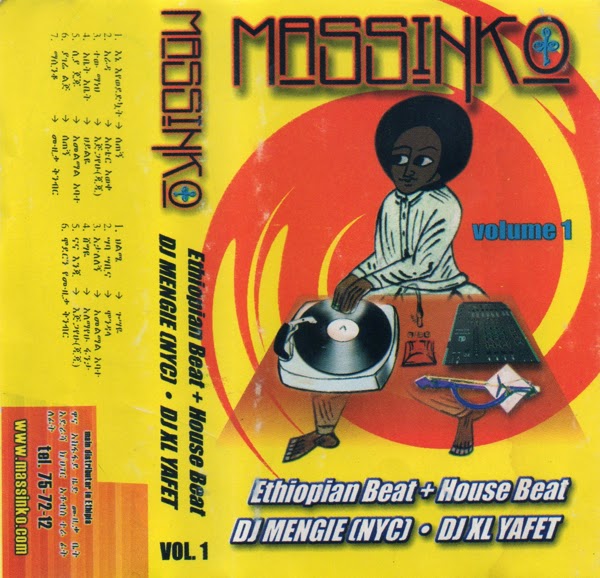Mulatu Astatke - New York-Addis-London [Full Album]
Ethio jazz. That's what Mulatu Astatke called his style of music when he invented it back in the 1960s, and it means exactly what it implies: Ethiopian melodies played on Western instruments with room for improvisation. Astatke was a pioneer for his country's modern music. His concept of instrumental music as an end in itself was a bit foreign in his homeland, where singers rule the popular music sphere, and he was among the very first musicians from Ethiopia to learn about music while abroad. He started playing as a teenager at school in Wales, and after a stint at London's Trinity School of Music, he jumped the Atlantic for a brief stay at Boston's Berklee College of Music, ultimately winding up in New York City in the mid-60s. There, he was exposed to sounds he simply couldn't have heard back home in Addis Ababa, and his exposure to jazz and Western harmonic concepts led him to formulate Ethio jazz, the perfect hybrid of the traditional and the modern.
His first attempts to forge his new genre occurred in the U.S., and his band members were mostly Puerto Rican. You can tell by listening, too. The several tracks here lifted from his two Afro Latin Soul LPs bear a strong stamp of boogaloo, Latin jazz, and other Americo-Caribbean forms. When he returned to Ethiopia, he arrived at a time when the country was opening up as never before, and Addis Ababa was as cosmopolitan as cities came, boiling with cultural restlessness that fed a vibrant nightlife. Recording resources were limited, but in 1969, Mulatu began cutting tracks for Amha Eshèté's Amha, the first independent label ever established in the country. He worked primarily as an arranger, but frequently wrote and recorded instrumentals to serve as B-sides for vocal songs, some of which are being issued here for the first time outside Ethiopia.
Astatke brought a unique skill set back to Addis with him, where he was able to employ musicians who'd grown up with the music he was so consciously modernizing. The resulting music is simply brilliant, fresh even decades later. The way Mulatu harmonized horns, combining pentatonic Ethiopian melody with Western chord concepts, sounds like no one else-- the music seems both ancient and modern at once, befitting the mixture of raw ingredients. This compilation is utterly intoxicating from the first note to the last-- preternaturally funky, haunting, complex, memorable, exciting, and unique, Ethio jazz easily transcends the era in which it was made.
"Mulatu", from his 1972 LP Mulatu of Ethiopia, recorded in New York with members of Mongo Santamaria's band during a visit to the States, is a brilliant signature track, a darkly funky tune with a hint of Caribbean shuffle, snaking sax solos, Mulatu's own cloudy vibraphone, and a bit of wah-pedaled Wurlitzer. The stately, smoky "Netsanet" is drawn from 1974's Yekatit: Ethio Jazz LP, the very first Ethiopian LP to be conceived as an album in advance (as opposed to a collection of 45 sides). Like the other songs from that album, it has a weighty solemnity to it that betrays the difficult revolutionary period during which it was recorded. My favorite Mulatu track, "Ené Alantchie Alnorem", was previously featured on Buda Musique's Ethiopiques Volume 4 compilation, and it still kills here. It is a song without a solid core: its fluttering electric piano, flute, and drums spin in an ethereal wash, held together by wind sound effects and a heavy sonority, and the descending piano line that outlines the chords feels like it's falling and catching itself on each beat.
A handful of vocal tracks dot the compilation, and they're all outstanding as well. "Ebo Lala" features Seifu Yohannes putting on his best Bollywood-inspired show, huffing and puffing over a heavy Latin beat and blasting horn section. "Wubit", featuring Muluken Melesse, has a cool, funky crime jazz strut, a sick breakdown, and a quintessentially Ethiopian melismatic vocal-- that this song has remained hidden from all but a few collectors in Ethiopia until now is almost criminal. Even Mulatu's very first foray into recording, the Latin-tinged instrumental "Shagu", bears his unmistakable signature, playing its cycling piano riff two octaves lower than in most Latin music and featuring a dark, mysterious vibraphone lead playing between Ethiopian pentatonics and modal concepts nicked from post-bop jazz.
Mulatu Astatke - Yefikir Tizita
Ethio jazz was never a commercial success in Ethiopia. That Ahma and Philips Ethiopia even saw fit to release any of it is a credit to their commitment to art over commerce, and even today it remains little-heard in its homeland. But Mulatu was a master craftsman and one of the most supremely inventive composers of a time when an awful lot of creative music was being made around the world. He's still going today, guesting on radio shows and teaching in Addis, and he released a great album with London's the Heliocentrics as his backing band earlier this year. But even if he'd disappeared after 1975, his legacy would be sealed.
by Joe Tangari


















